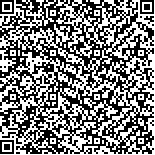本文已被:浏览 181次 下载 170次
Received:February 09, 2023 Published Online:November 20, 2023
Received:February 09, 2023 Published Online:November 20, 2023
中文摘要: 目的 探讨基于人格分析的认知性情绪调节联合健康行为管理对冠心病患者经皮冠状动脉介入(PCI)术后应对方式、认知程度和自我管理能力的影响。方法 选取2020年4月至2022年6月于西京医院行PCI术的冠心病患者122例,随机分为研究组(n=61)和对照组(n=61)。对照组患者给予常规护理联合健康行为管理,研究组患者在对照组的基础上给予基于人格分析的认知性情绪调节。干预1个月后,比较两组患者应对方式[医学应对方式问卷(MCMQ)]、认知程度[蒙特利尔认知评估量表(MoCA)和认知性情绪调节问卷(CERQ)]、自我管理能力[冠心病自我管理行为量表(CSMS)和自我护理能力量表(ESCA)]、健康行为[健康促进生活方式量表(HPLP Ⅱ)]评分及干预期间不良事件发生情况。结果 干预1个月后,研究组患者MCMQ量表面对评分、MoCA、CERQ量表适应情绪调节评分、CSMS、ESCA、HPLP Ⅱ评分高于对照组(P<0.05);MCMQ量表屈服、回避评分低于对照组(P<0.05),且研究组各评分优于对照组(P<0.05)。干预期间,研究组患者不良事件发生率低于对照组(4.9% vs 16.4%, P<0.05)。结论 基于人格分析的认知性情绪调节联合健康行为管理可有效改善冠心病PCI术后患者应对方式及认知程度,提高自我管理能力,有效降低患者术后不良事件发生率。
Abstract:Objective To explore the effects of personality analysis-based cognitive emotion regulation combined with health behavior management on coping styles, cognitive degree and self-management ability of patients with coronary heart disease (CHD) after percutaneous coronary intervention (PCI). Methods A total of 122 patients with CHD who underwent PCI in Xijing Hospital from April 2020 to June 2022 were randomly divided into study group (n=61) and control group (n=61). Patients in control group were given routine nursing combined with health behavior management intervention, and patients in study group were given personality analysis-based cognitive emotion regulation intervention on the basis of the control group. The coping style [Medical Coping Modes Questionnaire (MCMQ)], cognitive degree [Montreal Cognitive Assessment (MoCA), Cognitive Emotion Regulation Questionnaire (CERQ)], self-management ability [Coronary Heart Disease Self-Management Behavior Scale (CSMS), Self-Care Ability Scale (ESCA)], health behavior [Health Promoting Lifestyle Profile-Ⅱ (HPLP-Ⅱ)] and the occurrence of adverse events during the intervention were compared between two groups. Results After 1 month intervention, the facing score of MCMQ, MoCA, the adaptive emotion regulation score of CERO, CSMS, ESCA and HPLP Ⅱ in study group were higher than those in control group (P<0.05), while the yielding and avoidance score of MCMQ were lower than those in control group (P<0.05), and the scores of study group were better than those of control group (P<0.05). During intervention, the total incidence rate of adverse events in study group was lower than that in control group (4.9% vs 16.4%, P<0.05). Conclusion Cognitive emotion regulation based on personality analysis combined with health behavior management can effectively improve the coping style and cognitive degree of patients with CHD after PCI, improve self-management ability, and effectively reduce the incidence of postoperative adverse events.
keywords: Coronary heart disease Percutaneous coronary intervention Personality analysis Cognitive emotion regulation Health behavior management Coping styles Cognitive degree Self-management ability
文章编号: 中图分类号: 文献标志码:B
基金项目:国家自然科学基金 (82270526)
引用文本:
